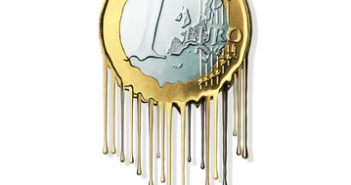The Euro-zone joins Britain, with inflation above target. According to the initial estimation for December, the annual rate of inflation jumped to 2.2%, above the target inflation of 2% that the ECB holds. Should interest rates inevitably rise to curb inflation, and push the Euro higher? Not so fast…
Jean-Claude Trichet, the president of the ECB, has recently taken pride in maintaining an almost perfect inflation rate, despite all the turbulences. This new situation, if it’s sustainable, means double trouble for the ECB – On one hand, they want to stop the rise of inflation, and the interest tool is the best means they have.

On the other hand, unemployment is still high. Spain has over 20%, Ireland and Greece are deep into double digits, and even Germany, which enjoyed outstanding drops in the level of unemployment, disappointed with a fresh report showing a small rise in unemployment – the first time in almost a year.
Add the big loads of debt that European governments and bank have, and you have another reason for leaving the rates low. Growth in troubled countries is necessary in order for them to be able pay the debt and get out of the sad situation.
So, it’s a big headache for the ECB, and lots of choppy moves for the Euro. It’s hard to find a straightforward and balanced solution.
In the meantime, EUR/USD rose, but met strong resistance under 1.3440, which proves to be strong once again.
Against the dollar, in particular, the new strength in the US economy also pushes EUR/USD lower. This strength is seen in better jobs especially but also in the fresh factory orders figure.
For more European events due this week and a technical analysis for the common currency, see the Euro Dollar forecast.
Add the



